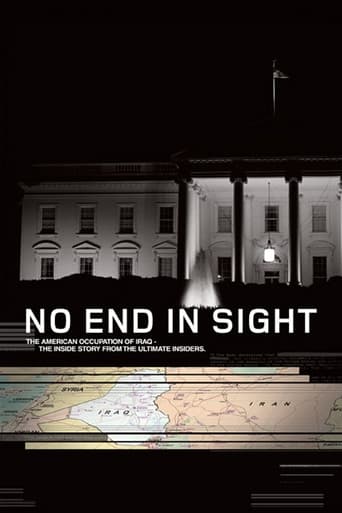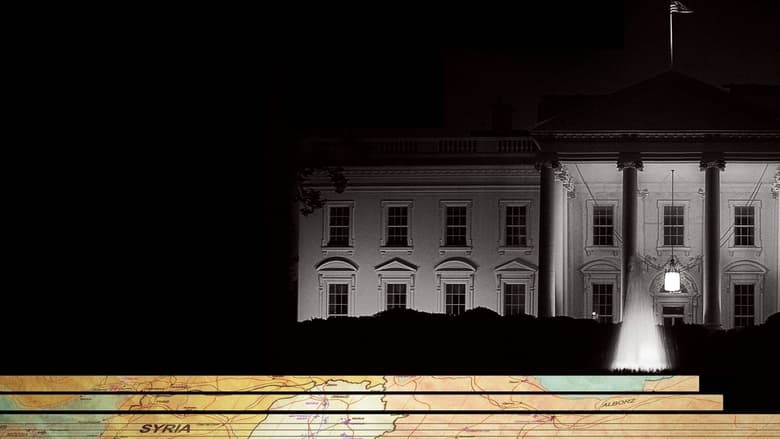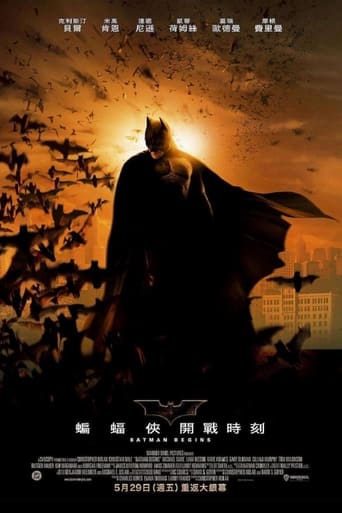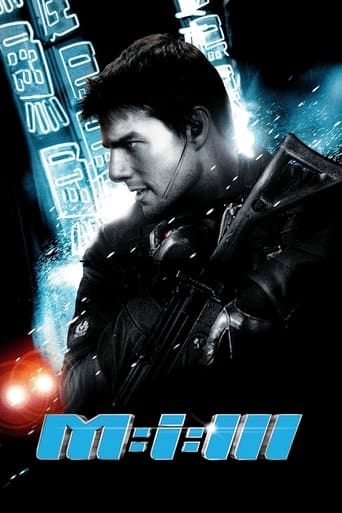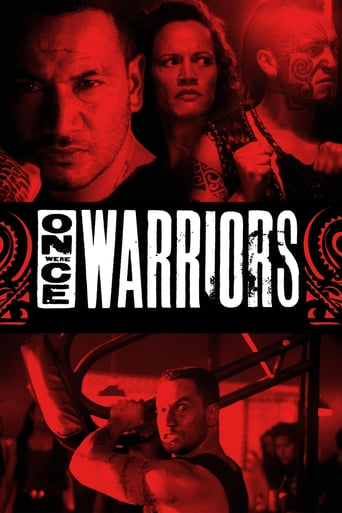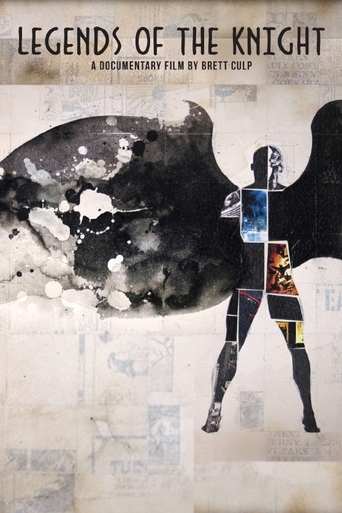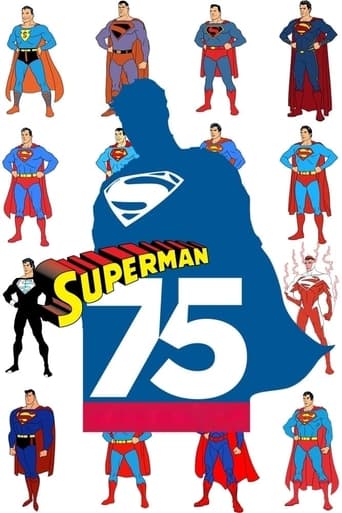No End in Sight (2007)
Chronological look at the fiasco in Iraq, especially decisions made in the spring of 2003 - and the backgrounds of those making decisions - immediately following the overthrow of Saddam: no occupation plan, an inadequate team to run the country, insufficient troops to keep order, and three edicts from the White House announced by Bremmer when he took over.
Watch Trailer
Cast
Similar titles
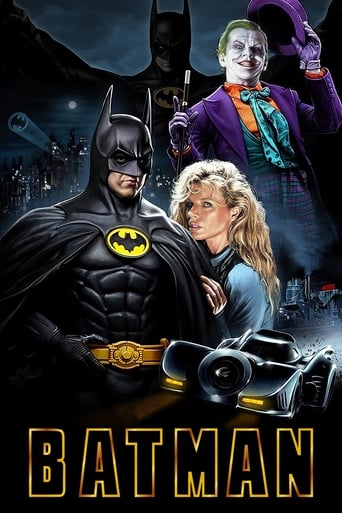

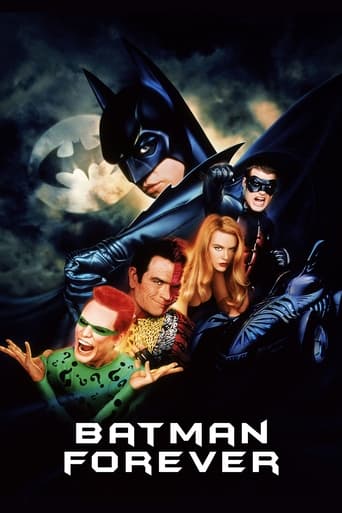
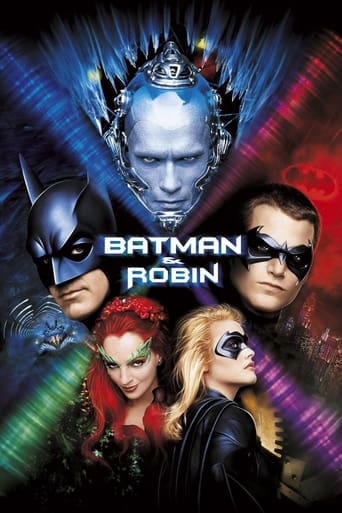
Reviews
People are voting emotionally.
It's entirely possible that sending the audience out feeling lousy was intentional
The first must-see film of the year.
This movie feels like it was made purely to piss off people who want good shows
You know I try to come into these things with an open mind, but it's clear this movie learned it's propaganda tactics from Fahrenheit 9/11. A bunch of hosed down juxtapositions to make the Bush administration look like mass murderers. Fact is we don't have import much of our oil from Iraq or Afghanstain so another blood for oil lie. This movie is left wing garbage.
One of the interviewees muses that rebuilding Iraq would be difficult, that there were 500 ways we could go wrong and only 2 or 3 in which we could go right. "We didn't realize," she concludes, "that we were going to go through all 500." Is this a Bush-bashing propaganda piece? Not really. Bush rarely comes up, partly because he was out of the loop on most of the important decisions, such as disbanding the Iraqi army, de-Ba'athifying the nation, and so forth. He'd evidently turned all of that over to the people who really get clobbered here, namely Cheney, Wolfowitz, Bremer, and especially Rumsfeld.The film lays out for us things that generally most of us already know about. It's not about combat, except insofar as combat appears as a consequence of mismanagement at higher levels. It doesn't jerk easy tears. A few soldiers tell us what it's like to be blown up. A few Iraqis describe kidnappings of their friends, neighbors, and children. But nobody breaks into sobs and shows us his wounds, and the anecdotes aren't detailed. The justification for the war is barely touched on, and Constitutional issues aren't raised. There's hardly any musical score and it's not melodramatic. The appeal is to logic and perception, not emotion, although nobody would call the film dull in any way.The interviewees we meet are sober and convincing, even as they confess their own misjudgments. Rumsfeld and the rest refused to be interviewed for obvious reasons. Their decision is understandable but it leaves the field open for critics of the war. The interviewer is not especially hostile, even to subjects who believe the reconstruction was handled well, like Walter Slocumbe. But the critics are not rabid left-wingers either, just military people, diplomats, and cogs in the wheel of nation rebuilding.What a tragic waste this has been. Never mind the physical and mental suffering of everyone involved -- except, evidently, those who are ultimately responsible for the tragedy. As of the time this film was released in 2007, the eventual cost of the war in Iraq was estimated by two highly respected economists (one a Nobelist) at $1.86 trillion. Think of what we could do with that amount domestically. And, ironically, who has benefited the most from this ill-conceived and hasty invasion? Our adversary for the past 30 years, Iran. We eliminated their greatest enemy.The film prompts considerations that go beyond Iraq. Maybe some nations simply don't have the infrastructure for the kind of Jeffersonian democracy that we enjoy. Maybe at some level, communities are best suited for a kind of benign totalitarianism. In city neighborhoods dominated by the Mafia, corruption is endemic but there are only occasional outbursts of violence. And the neighborhood runs smoothly when everyone knows what's expected of him. It's unjust but within its limitations it works. During the chaos of 2007, one of the Iraqis interviewed on the street shouts, "If this is democracy, we don't want it. Give us a strong man and bring us order." Something like that.
It's a fascinating film, which will leave you with a sour taste in your mouth. As you watch this movie, you'll end up convinced that the Bush administration was run by a bunch of incompetent people, and you'll be wondering, how on earth could have they gotten away with their disaster after disaster in Irak? The movie does not have to make bold statements about the terrible job that this administration did after the invasion, because the facts just speak for themselves. What I like of the movie is how it shows the line of events that make the post-invasion of Iraq a complete disaster. Maybe I could synthesize it as an arrogant administration which excludes anyone with a different point of view from W's inner circle (Cheney, Rumsfeld, Wolfowitz, etc). Their decisions, either based on ignorance, incompetence, uninterest (who knows?) created the conditions for the rise of the insurgency and the deterioration of the situation in Iraq after the fall of Saddam's regime.What is most frustrating, and which the movie shows so clearly, is that the Iraq disaster has to be bravely shouldered by the US soldiers, who are sent to the war with inadequate equipment, and the wrong strategies, to try to solve it. The movie also shows the suffering of the Iraqi people, and how they try to cope with it. It's sad that many ended up confessing that under Saddam their situation was bad, but under the war it became worse. Hopefully that has changed since the documentary was filmed.
Documentaries on the war in Iraq are suddenly experiencing somewhat of an exponential growth and producing a very cluttered market place. Of course one aspect of this happening is that you get lots of weak ones along with the stronger one and, when it comes to picking them off the TV guide it is hard to know what is what. As a member of the choir on this subject, I have seen quite a few weak ones but also some good ones. No End In Sight enters this field as a very good if not brilliant entry that very much covers similar ground that was done by the better film "No Plan No Peace".However baring this in mind it is to the credit of the film and telling of the shock value of the material that this film still engaged me. Many of the contributors and clips I had seen several times in other films on similar subjects but yet this film still worked for me. The reason for this is because it structures its point pretty well, moving forward chronologically but also with the events broken down into headed sections. The straight telling carries it though and Ferguson has pulled together his contributions, clips and footage in such a way that it is hard to disagree with. I do not agree with some that dismiss this as biased I just think sometimes it is hard to accept when you are wrong. Of course the film does do what Ferguson wants because he is writer and director but there is a reason why there are not many "so how great is Iraq going now huh?" films doing the rounds.The contributions are perhaps the usual faces but they are still used well and edited tightly to make the point. OK I did feel slightly sorry for Walter Slocombe but this was only a temporary feeling as Paul Hughes was used to cut under those in charge. Garner is as important and honest as ever while others are brought in to held build events and highlight weakness and failure throughout the planning (or rather lack of planning). The film deserves to be seen and it deserves credit for being able to pull this chaos and confusion together into a clear and concise summary that may well lean a certain way but perhaps understandably so. It is not as impressive a film as the BBC's No Plan No Peace, but it is still a well put together and effective documentary that is good enough to stand out from the very big crowd.
